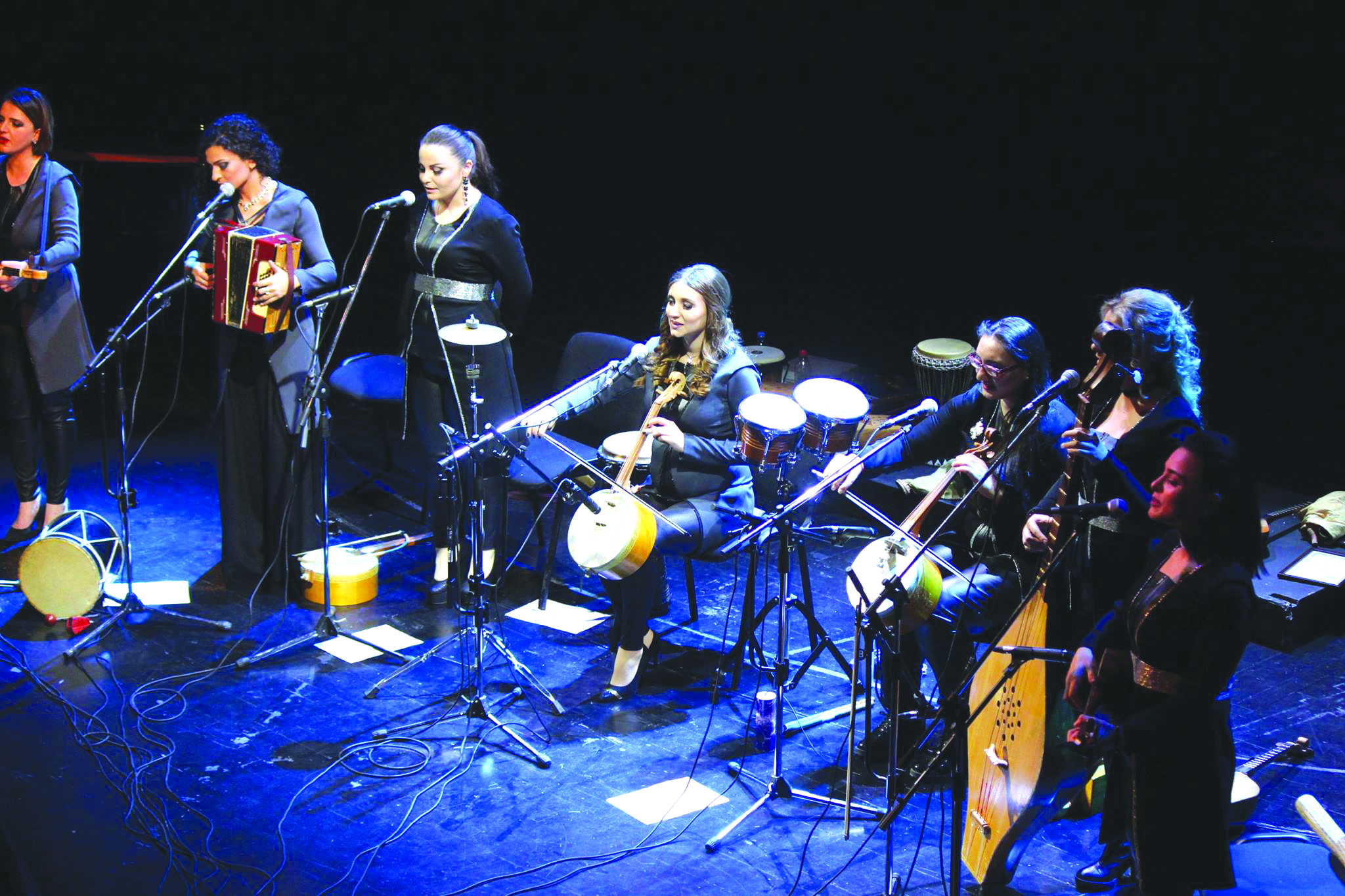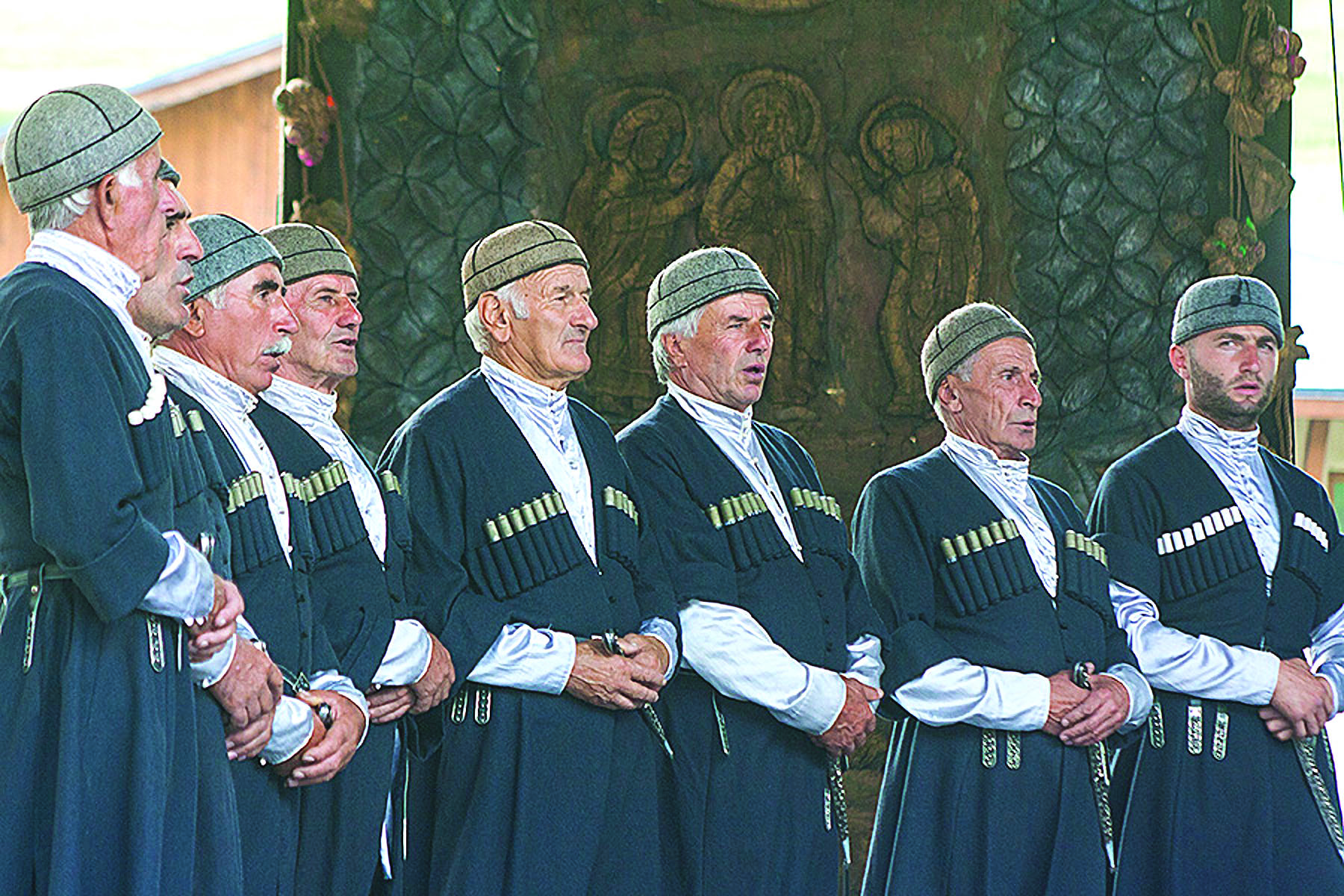For such a small country, Georgia boasts an impressive variety of regional differences in much of its geography and culture. The list includes cuisine, language and dialect, dress, geography, flora and fauna, microclimate… and song, both acapella and accompanied. One of the country’s most famous examples of song is, indeed, now hurtling through interstellar space outside the solar system at fantastic speeds, part of the Golden Record of sounds representing Earth on the Voyager spacecraft. This song is called Chakrulo.
Georgian polyphony, or multi-part singing, is generally accepted by musicologists to have begun well before the start of national Christianity in the 4th century AD, practiced by farmers in villages. One can get quite technical about scales, harmonies, history and so on. But actually to hear the singing is something else, which affects the soul itself quite profoundly. This writer lives in a village in upper Svaneti whose school’s music teacher is part of a small local men’s choir called Riho. This choir has been to France twice by invitation, each time both to tour and to cut CDs. Recently, they also won a televised national village choir challenge, beating out about 400 competitors in the process. They are frequent travelers on the long road to Tbilisi and back too, much in demand for national-level cultural events. And we hear them regularly at home, providing a somber or joyous background to local funeral or wedding feasts.

The Russian Empire and especially Soviet decades had a profound effect on Georgian polyphony, as can be heard from the earliest extant recordings of it, from the late 19th to early 20th centuries or so, and comparing these to much later ones. Church music was largely taken off the repertoire in the atheist setting. And the new formation of much larger choirs than the usual trio, handful or small group of singers made the precious improvisation known to these little groups much rarer. At least the recordings still exist, as precious examples of the earlier traditions and highlights of pre-Soviet singing. Their recording quality is not fantastic, from a century and more ago, but the spirit still shines through.
For a while now, Georgian polyphony has been at a crossroads. Choirs and new recordings have multiplied greatly; so have styles and innovations, following those of musical instruments and costumes and dance, not to mention the rest of Georgian culture, like cuisines and feast traditions. Some choirs, however, seek to return to the simple purity of the much earlier groups, resisting change. It is even possible for foreigners living in Georgia, especially Tbilisi, to try to join in with the singing, for example with Okros
Stumrebi (Golden Guests), a choir made up entirely of non-Georgians, which was begun in 2001 by Karl Linich. If the language itself is challenging enough, try adding Georgian melodies and harmonies to it! We can only try, indeed.

There may be much in Georgian culture which we outsiders can experience only as guests. It might touch us deeply, but perhaps rarely as deeply as it will affect those who understand it straight from the inside, every flavor and nuance and note and play on words. But these barriers should not dissuade the foreigner here from experiencing all the richness available. We are revered as guests, the saying being that as such we are God-sent; we should aromas, textures and flavors have much to tell, starting from millennia ago.
Whether you are at a small informal supra (feast) or a much larger formal one, in a restaurant or a home, or at a concert held on a stage in a large auditorium, the singing may break out by design or on the spur of the moment, by any number of performers from two to a hundred. Let it wash over you and you will emerge changed.
By Tony Hanmer
Main photo: Georgianjournal
Other photos: Tony Hanmer
